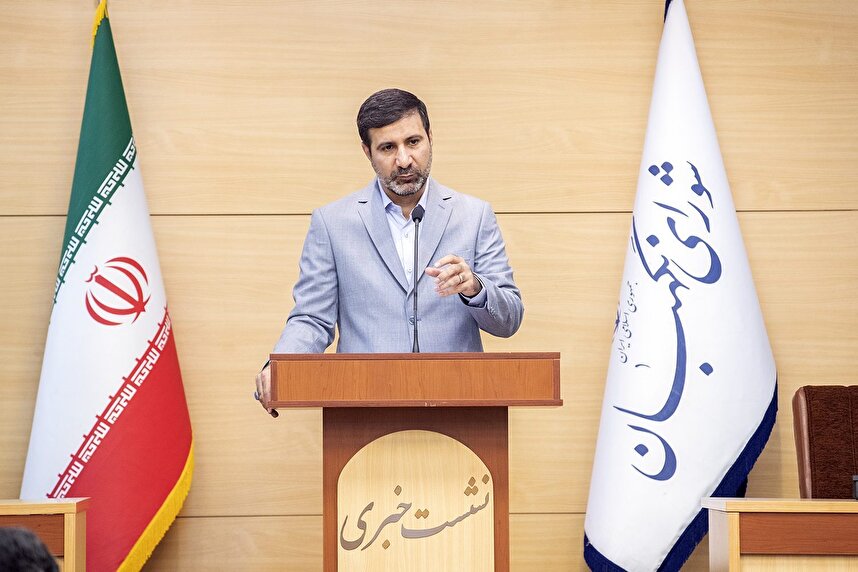- Constitutional Council spokesman visits Tehran Times anniversary exhibition
- ‘A Historic Day and A Valuable Legacy for Resistance’
- Spokesperson criticizes international community's inaction over US, Israel’s atrocities
- Right to resistance a legitimate struggle for liberation from domination: Tahan Nazif
Spokesperson holds presser, presents detailed accounts of recent legal reviews

Addressing journalists in a press conference in Tehran on Saturday, Hadi Tahan Nazif announced that over the past month, the Constitutional Council had reviewed eight parliamentary bills, seven statutes of state-owned companies, and four inquiries from the Administrative Justice Court. Among the key approvals were the prisoner transfer agreement with Uzbekistan, amendments to the law on arms smuggling, and agreements involving arbitration with South Korea and customs cooperation with Japan. The Council also approved Iran’s increased shares in World Bank institutions and the country’s accession to the Vienna and Strasbourg classification agreements on trademarks and patents.
However, not all proposals were cleared. The prisoner transfer agreement with Venezuela was rejected on the grounds of violating Islamic principles, while the amendment to Article 87 of the Civil Service Law was turned down following objections raised by the Supreme Oversight Committee of the Expediency Council.
Addressing broader legal and constitutional responsibilities, Tahan Nazif reaffirmed the Council’s role in reviewing legislation for consistency with both Islamic principles and the Constitution, stating that this duty extends well beyond electoral matters.
He added that the Council reviews finalized legislation and will address any new laws or amendments, especially those aligned with modern technological developments and national needs.
On Iran’s involvement in the CFT and Palermo conventions, Nazif clarified that the Constitutional Council had only objected to the CFT. Due to Parliament’s insistence on moving both conventions forward, their final assessment now falls under the Expediency Council’s Supreme Oversight Committee. While the Guardian Council’s advisory presence in the Expediency Council is not formalized, its representatives participate in relevant meetings to present legal perspectives.